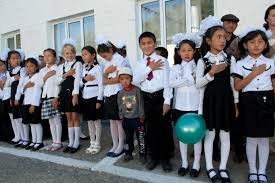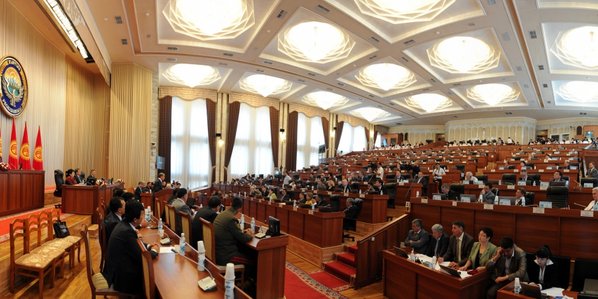A TALE ABOUT LIFE INCLUSION
DEH - europeanhouse.org
Kyrgyzstan Education System
Education is compulsory for 9 years, comprising 4 years in a primary school from age 6 through 10, followed by secondary school for 5 years up to the age of 15. At this point students can leave school or continue their studies in either an upper secondary school, a specialized secondary school, or a technical/vocational school. At 18 years of age, further education is conducted within the university system.
Enrollment
The enrollment rate is debated: In 1990 is was reported to be a 100 pct. But now it is said to be between 75-90 pct.
Enrollment for males (75 percent) was less than for females (83 percent).
Check the enrollment rates now in the Kyrgyz Republic and in Denmark: www.worldbank.org
What is the plan for educational development in Kyrgyzstan? In Denmark? Compare to the United Nations Millennium Development Goals
Do you think that equality will improve by education in Kyrgyzstan? In Denmark?
How do you think the best school system shall be?
Kyrgyz system
Legislative power is exercised by Parliament - Jogorku Kengesh. The Parliament of the Republic Jogorku Kengesh is unicameral and consists of 120 deputies elected for five years, according to party lists.
The parliament in Kyrgyzstan has priority in making important state decisions. Kyrgyzstan is considered the most democratic country in the Central Asia region.
The Kyrgyz Republic declared independence on 31 August 1991. Kyrgyzstan is an independent, secular, democratic and lawful state.
Until 2010 the form of government was presidential but after the adoption of the Constitution in 27 June 2010 most of the authority was taken by the Parliament and the Prime Minister, thus, Kyrgyzstan became a parliamentary republic. Prime Minister is the head of government, appointed by the Parliament on the proposal of the parliamentary fraction of the majority (of deputies from political parties that received over 50% of the seats).
The President is elected for six years without the right for the second term. Under the new Constitution, the same person may not be elected as President twice.
The judicial system of Kyrgyz Republic is established by the Constitution and laws, consists of the Supreme Court and local courts. Judicial power is exercised through constitutional, civil, criminal, administrative and other forms of legal proceedings.
The Constitutional Chamber is included in the structure of the Supreme Court. The law allows establishment of specialized courts. The establishment of emergency courts is prohibited.
Copyright © All Rights Reserved
DEH
Uraniavej 5
1878 Frederiksberg C
Besøg undervisningspakken:




